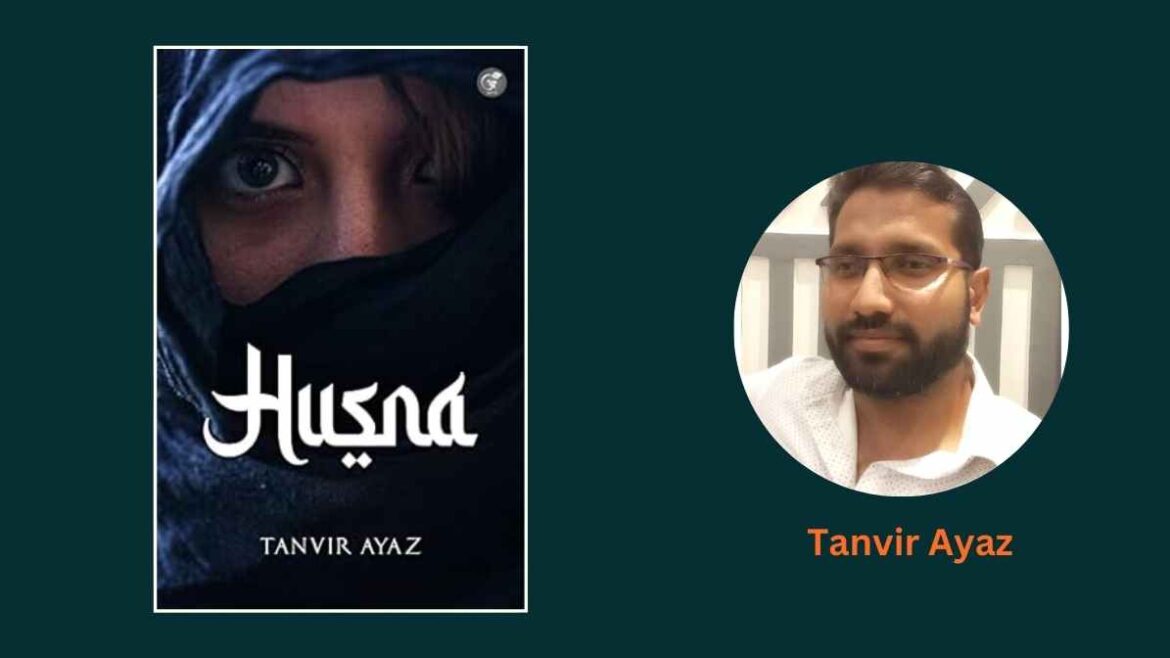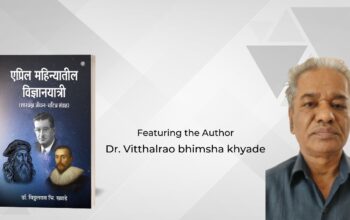In the wake of the 21st century, the world has been grappling with the unsettling rise of Islamophobia, an issue exacerbated by the growth of various movements that exploit and perpetuate anti-Muslim sentiment. In “Husna,” author Tanvir Ayaz undertakes the ambitious task of dissecting the factors that have contributed to the rise of Islamophobia while avoiding the pitfalls of conspiracy theories and victimization narratives. The book serves as a thought-provoking exploration of the transformation of the Muslim world from its historical position as a political, military, and intellectual powerhouse into an era marked by regression, extremism, and chaos.
Written in eloquent prose, “Husna” is a work of fiction that transports readers to the 19th century, post-Mughal India. Within this historical backdrop, Tanvir paints a vivid portrait of the Muslim community’s journey through the prism of power dynamics, religious fervor, and intellectual evolution. One of the book’s significant achievements is its ability to shed light on the complex emotions and frustrations that accompanied the gradual loss of political power and glory. The author masterfully navigates through the intricate tapestry of historical events, presenting a nuanced understanding of the myriad factors that have shaped the Muslim community’s trajectory.
At the center of the historical thriller, is Husna, a young woman who is living through perhaps the stormiest phase of her life. But she is no typical damsel in distress. Though shaken by her circumstances and having her own emotional flaws, she still is a strong-willed and spirited lady at heart. We witness the fictional world of Mughara through her eyes, her experiences, her emotions and the lessons that she learns. The secondary characters too showcase the wide spectrum of human nature, ranging from love, lust, hate and hope to brutality, bigotry and hunger for power.
One of the book’s strongest attributes is its unflinching examination of the role played by reactionary mullahs in shaping the Muslim community’s trajectory. The author provides a multidimensional analysis of the influence of religious leaders, delving into the motivations and mechanisms behind their rise to power. This scrutiny contributes to a comprehensive understanding of the forces that have perpetuated regressive tendencies and hindered the community’s progress. Tanvir’s balanced portrayal underscores the book’s commitment to shedding light on the complexities of the issue without succumbing to simplistic narratives.
The narrative’s historical context is impeccably researched, with Tanvir demonstrating a thorough grasp of the political, social, and cultural dynamics of 19th century India. The intricate details and vivid descriptions transport readers to a bygone era, enabling them to witness the transformation of the Muslim community firsthand. This historical authenticity enhances the book’s impact, allowing readers to draw parallels between historical events and contemporary challenges faced by Muslims.
While “Husna” excels in many aspects, there are moments when the pacing of the narrative feels uneven. At times, the narrative delves into minute details, slowing down the overall momentum. However, Tanvir’s elegant prose and compelling characterizations compensate for these moments, keeping readers engaged even during slower passages.
In addition to its historical and sociopolitical insights, “Husna” also excels in its portrayal of complex characters. The book introduces readers to a diverse array of personalities, each grappling with their convictions, fears, and aspirations. Through these characters, Ayaz offers a lens through which to understand the broader dilemmas faced by the Muslim community. The characters’ internal struggles mirror the external challenges, creating a rich tapestry of interconnected narratives that add depth to the overall story
In conclusion, “Husna” by Tanvir Ayaz is a noteworthy addition to the literary landscape, particularly for readers seeking a deeper understanding of the factors that have shaped the Muslim world’s evolution and its current challenges. The book’s careful avoidance of conspiracy theories and victim mentality ensures that it remains firmly grounded in a well-researched exploration of historical events and ideological shifts. By delving into the frustrations of lost power, the rise of radical ideologies, and the influence of reactionary leaders, the book provides readers with a comprehensive view of the complexities inherent in the Muslim community’s journey. Tanvir’s elegant prose, well-developed characters, and dedication to thoughtful analysis make “Husna” a compelling and thought-provoking read that is sure to leave a lasting impression.



